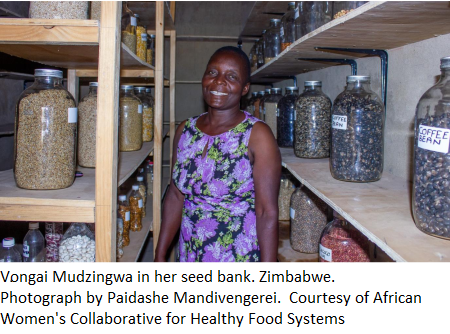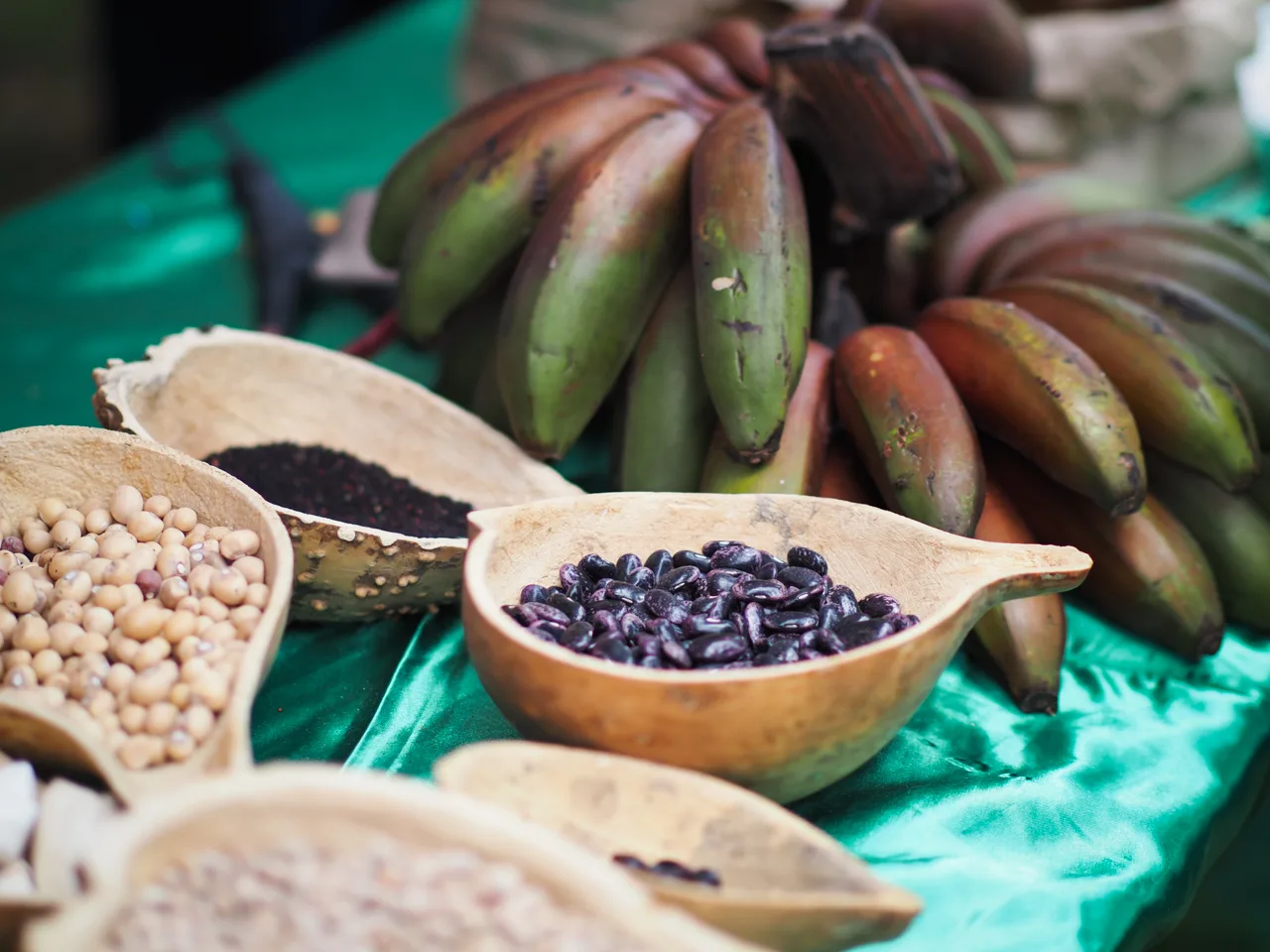
Farmers’ rights have been clearly recognized and reaffirmed as inalienable human rights – all indigenous peoples and peasants have the right to maintain, control, protect, and develop their own seeds and traditional knowledge. — Michael Fakhri, UN Special Rapporteur on the Right to Food
Farmers’ Seeds
Farmers’ seed systems are the foundation of all food systems. Smallholder farmers throughout the world produce, save, use, and conserve their own seeds. They also exchange and sell their seeds locally in their communities. Often women are the seed stewards of their community. In fact, many millions of small-scale farmers in sub-Saharan Africa, most of whom are women, still supply 80 to 90% of all the seeds planted in Africa.1 Smallholder farmers also maintain very high seed diversity in the types and varieties of seeds, which contributes to crop diversity and climate resilience.

Seed Security
Farmers have seed security when they have reliable access to good quality, affordable seeds of their choice, which are adapted to their environments and meet their socio-cultural needs. Their seed security is threatened whenever there is a breakdown in the seed systems that they depend on. Keeping seeds in the hands of smallholder farmers and maintaining a high diversity of seeds are critical in building resilient food systems in the face of climate change.
Seed Control
Despite the critical role that farmers’ seed systems play in feeding the world, in many countries there is little or no policy support or legal recognition of farmer seed systems. The majority of public and private investments and policy supports are directed towards the commodity – i.e., for profit — seed system. It is dominated by four agrochemical companies, the ‘Big Four’. They control 60 per cent of the global seeds market, leading to a stranglehold on seed varieties, distribution, and price.2 As a result, farmers are increasingly dependent on external and commercially controlled seeds (which are often not adapted to the local environment) and are losing control over their seeds and associated knowledge.
Two Separate and Contradictory Legal Systems
At the heart of farmers’ seed systems are farmers’ rights and human rights, including the Right to Life and the Right to Food, which are supported by UN treaties and declarations. At the heart of the commodity seed system are patent and intellectual property rights supported by international trade agreements. These two separate legal systems are at odds over the control of seeds.
Flourishing and resilient seed systems are key to the full realization of the rights to life and to food.
“The more a seed system recognizes and supports farmers as stewards of a seed system for all of humankind, the more likely this system fulfils people’s human rights.”
— Michael Fakhri, UN Special Rapporteur on the Right to Food
Dig Deeper… This week there is lots to choose from!
- Meet Fanta Traoré, grandmother and smallholder farmer in Mali and guardian to a very useful grain that farmers in her region had thought was lost for good. Read her seed story here.
- Seed Sovereignty — Watch this four-minute video from La Via Campesina in which farmers in South Africa explain the importance of seed-saving and sharing.
- Learn about the role and importance of Women’s Seeds in this article from the the African Women’s Collaborative for Healthy Food Systems.
- Seeds: Central to People’s Food Systems, Cultures and Human Rights – Read this excellent summary of a report presented to the UN Human Rights Council by Michael Fakhri, UN Special Rapporteur on the Right to Food. He clearly outlines the conflict between farmers’ seed systems and commodity seed systems and the importance of protecting farmers’ rights to life and food. [For those who are keen to dig really deep, here is a link to the full 20-page Human Rights report: Seeds, Right to Life and Farmers’ Rights . It is well worth reading.]
- To learn more about the concentration of power among “the Big Four” in the seed and agrochemical industry, read this article from foodandpower.net.
- A book recommendation for those who enjoy historical fiction: The Seed Keeper: A Novel by Diane Wilson – “With compelling characters and images that linger long after the final page is turned, The Seed Keeper invokes the strength that women, land, and plants have shared with one another through the generations.”— Robin Wall Kimmerer, author of Braiding Sweetgrass.



